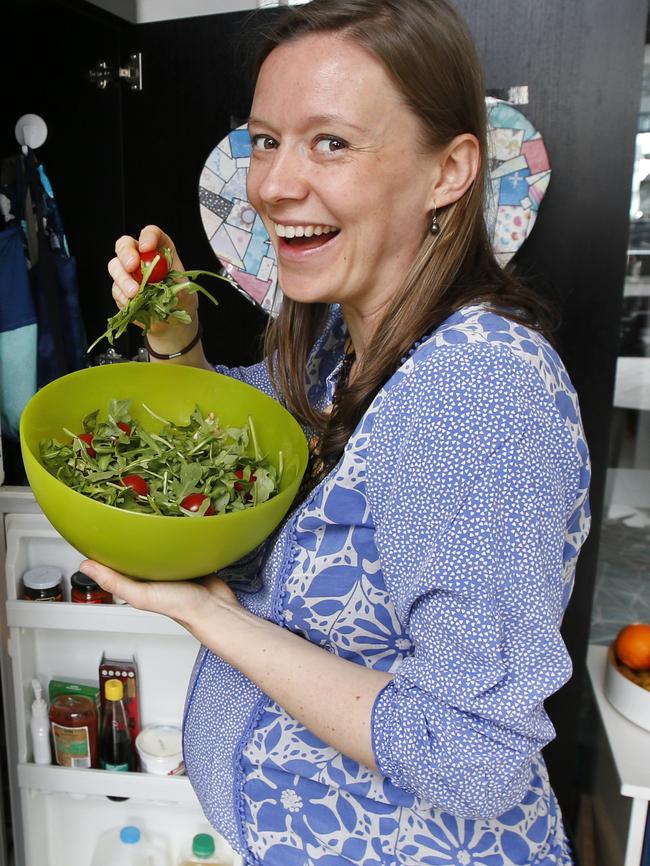Pregnancy diet: How eating healthily prevents dangerous risks from gestational diabetes
DIET alone is able to remove one of the most common and dangerous risks from many women with gestational diabetes — having big babies.
VIC News
Don't miss out on the headlines from VIC News. Followed categories will be added to My News.
- Pregnancy boozing changes kids’ faces
- Mums-to-be need to keep exercising
- Pregnancy a weighty issue for mums
- Can pilates help with labour pains?
DIET alone is able to remove one of the most common and dangerous risks from many women with gestational diabetes — having big babies.
Women who develop diabetes during pregnancy are up to 50 per cent more likely of having a large baby.
This increases the risk of labour injuries to mum and bub, raises the chance of a caesarean delivery and of babies needing special care treatment after birth.
The findings by the Royal Women’s Hospital, published on Thursday in Journal of Pregnancy, will mean that women with gestational diabetes who can meet blood sugar targets through diet changes will no longer be classified as a high risk pregnancy.

Lead researcher Dr Fatima Vally said it was hoped this may lead to these women needing fewer scans and specialist appointments in the final trimester, and avoid induction of labour.
“Up until now, all women in pregnancy with diabetes are treated as a high risk pregnancy, whether they are using diet, insulin, or other medications to control their diabetes,” Dr Vally said.
“Diet has always been the first port of call for managing diabetes in pregnancy.
“However no study has looked at whether diet can reduce the known risk of having bigger babies.”
The researchers looked retrospectively at 202 women who were controlling their gestational diabetes with diet, cross matching them by age and BMI to pregnant women without diabetes. Babies born to women with diet controlled diabetes were surprisingly slightly smaller than average.
The low-sugar and low-GI diet involves a more even spacing of meals over the day to keep blood sugars better controlled.
In the past few years Australian hospitals, including the Women’s, have lowered the diagnosis threshold for the pregnancy complication following recommendations from the World Health Organisation.
Dr Vally said given this widened catchment for diagnosis, increasing cases by more than a third, these findings were even more important to help save intensive monitoring for women at the most severe scale.


